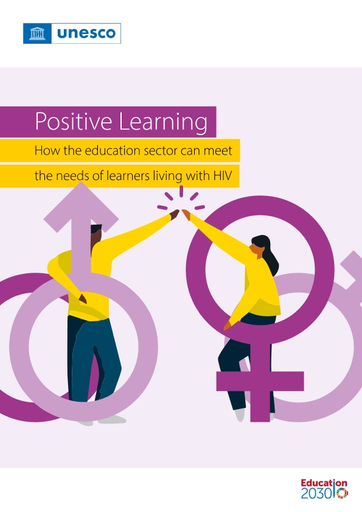Throwback to 2001, when UN Headquarters in NYC was lit up with the AIDS ribbon, signifying our commitment to ending HIV.
On 1st December, World AIDS Day, join UNAIDS in calling for greater efforts to address inequalities and ensure access to affordable, quality health care to save lives.
Every year, on 1 December, the world commemorates World AIDS Day. People around the world unite to show support for people living with and affected by HIV and to remember those who lost their lives to AIDS.
This World AIDS Day, UNAIDS is highlighting the urgent need to end the inequalities that drive AIDS and other pandemics around the world.
"The COVID-19 pandemic has laid bare the connections between education, health, and equality. It has also reminded us that accurate information is one of our most powerful public health tools. The education sector has a transformative role to play in promoting the health and well-being of all learners and ending inequalities, stigma and discrimination."
Audrey Azoulay, Director-General of UNESCO
Without bold action against inequalities, the world risks missing the targets to end AIDS by 2030, as well as a prolonged COVID-19 pandemic and a spiralling social and economic crisis.
While considerable progress has been made towards ending AIDS as a public health threat, the HIV epidemic is not over and young people remain disproportionately at risk. In 2020 alone, 410,000 young people between the ages of 10 to 24 were newly infected with HIV, of whom 150,000 were adolescents between the ages of 10 and 19. Moreover, comprehensive knowledge of HIV among young people remains far too low, with only one in three demonstrating accurate knowledge.
Comprehensive sexuality education (CSE) is essential for young people to be able to protect themselves from HIV. It also helps young people avoid unintended pregnancy and other sexually transmitted infections, encourages them to seek out health-related information and services, promotes values of tolerance, mutual respect and non-violence in relationships, and supports a safe transition into adulthood.
Education:
"Transformative education involves the teaching and learning geared to motivate and empower learners to take informed decisions and actions at the individual, community and global levels."
UNESCO
The education sector has a key role to play in closing the gap by preventing new infections among young people, supporting testing, treatment and care, and reducing stigma and discrimination within the school environment.
1.12.2021
Copyright © 2021G-Souto'sBlog, gsouto-digitalteacher.blog





No comments:
Post a Comment